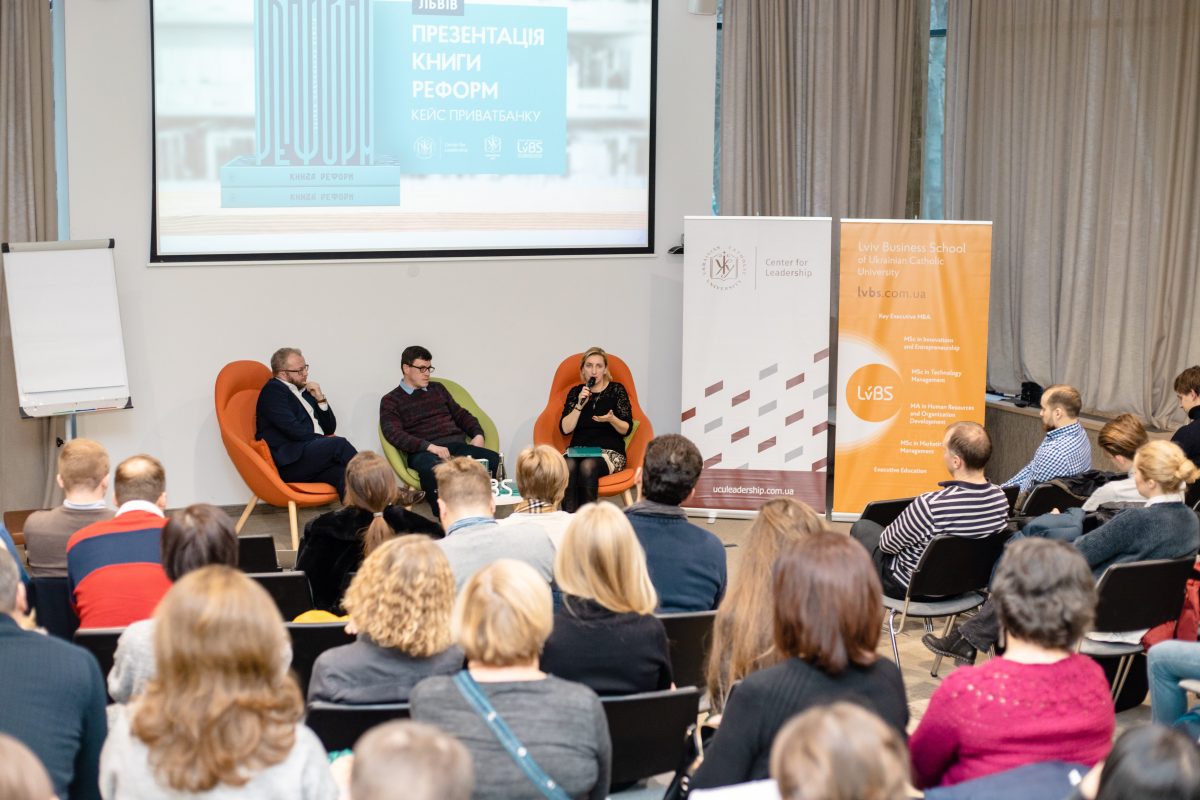
Along with the cases of leading foreign universities we may now use Ukrainian ones more – presentation of “Book of Reforms” in Lviv.
“In the academic process of the UCU, and LvBS particularly, we use many cases of other foreign universities. But program participants often tell us, “This is the Harvard case study, it’s about global organizations, it’s a completely different reality. We need examples closer to us and to our context.” Now we have published a collection of 12 training cases describing the management situations in Ukraine. Along with the cases of leading foreign universities, we will now be able to use Ukrainian ones more often”- Sophiia Opatska at the presentation of “Book of Reforms” in Lviv.

Recently, there has been a presentation of “Book of Reforms” consisting of twelve training cases, each describing comprehensively the specific case of the transformation process that took place in Ukraine after the Revolution of Dignity in 2013–2014. The book was published by the UCU Center for Leadership jointly with Lviv Business School of UCU with the support of Stanford University’s Center on Democracy, Development and Rule of Law and Ian O. Ihnatowycz Institute for Leadership (Richard Ivey Business School, University of Western Ontario).
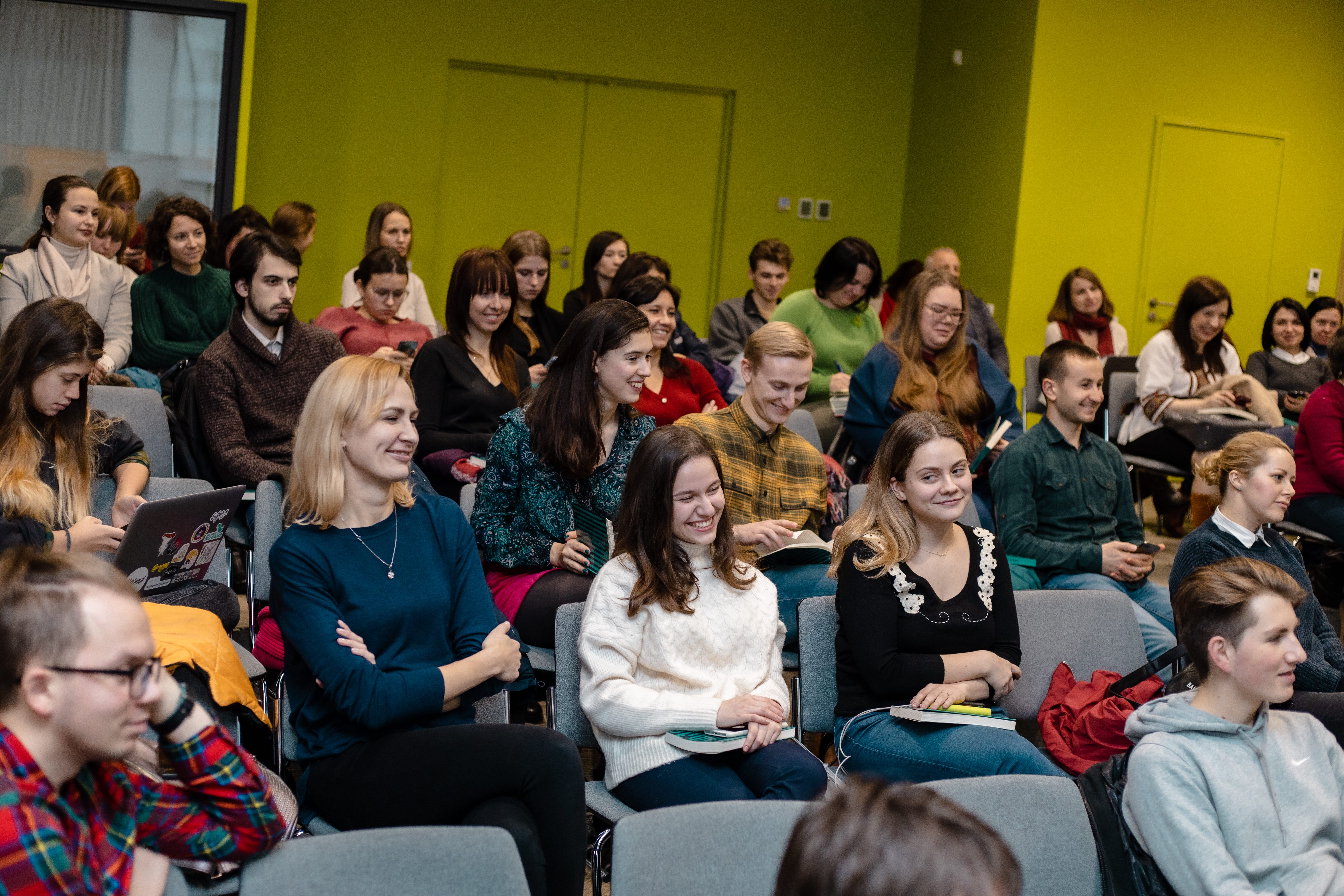
At the presentation, participants discussed the role of new training and case methods, in particular, in the modern educational process. “When we talk about how a university should change, first of all, we have to think about how a student changes,” Sophia Opatska, Vice Rector for Academic Affairs at the Ukrainian Catholic University, Founding Dean of Lviv Business School of the UCU (LvBS) mentioned, – Undoubtedly, we see that the behavior of the younger generation, the behavior of the student is changing, and, therefore, we must respond appropriately to these changes. Usually, students who are the first to come at the class, sit on the back benches. And the task of the teacher is to find a way to make sure that those who come first, but sit on the last row in search of comfort, not only hear him / her, but also are involved in the work. I’m sure that we learn only when we feel uncomfortable, when we need to step over ourselves, when we need to be prepared for unexpected situations. Here, the case method may help,” the Vice Rector assures.
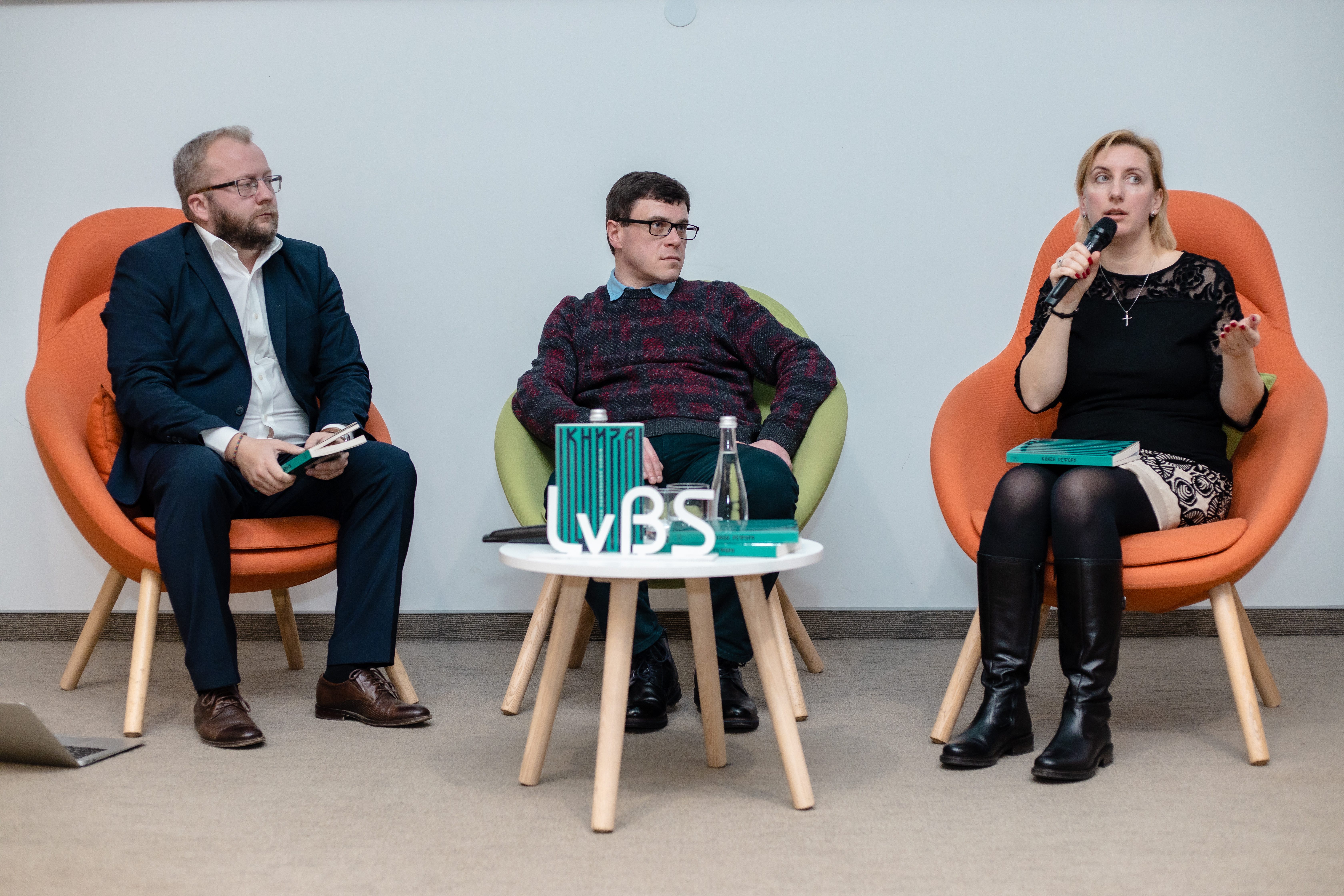
The presentation of the collection will be held in the format of a deeper acquaintance with one of the cases. In this way, the participants have learned how it is possible to learn from the case-study and dive into the context of the events described in the text. “In Western business schools, students learn nearly 200-250 cases during their studies. In this way, they familiarize themselves with a large number of management situations, companies or organizations, they understand the context in which this or that situation occurred and, since each case is based on a specific theory, these students also learn a lot of theoretical material”, – Sophia Opatska adds.
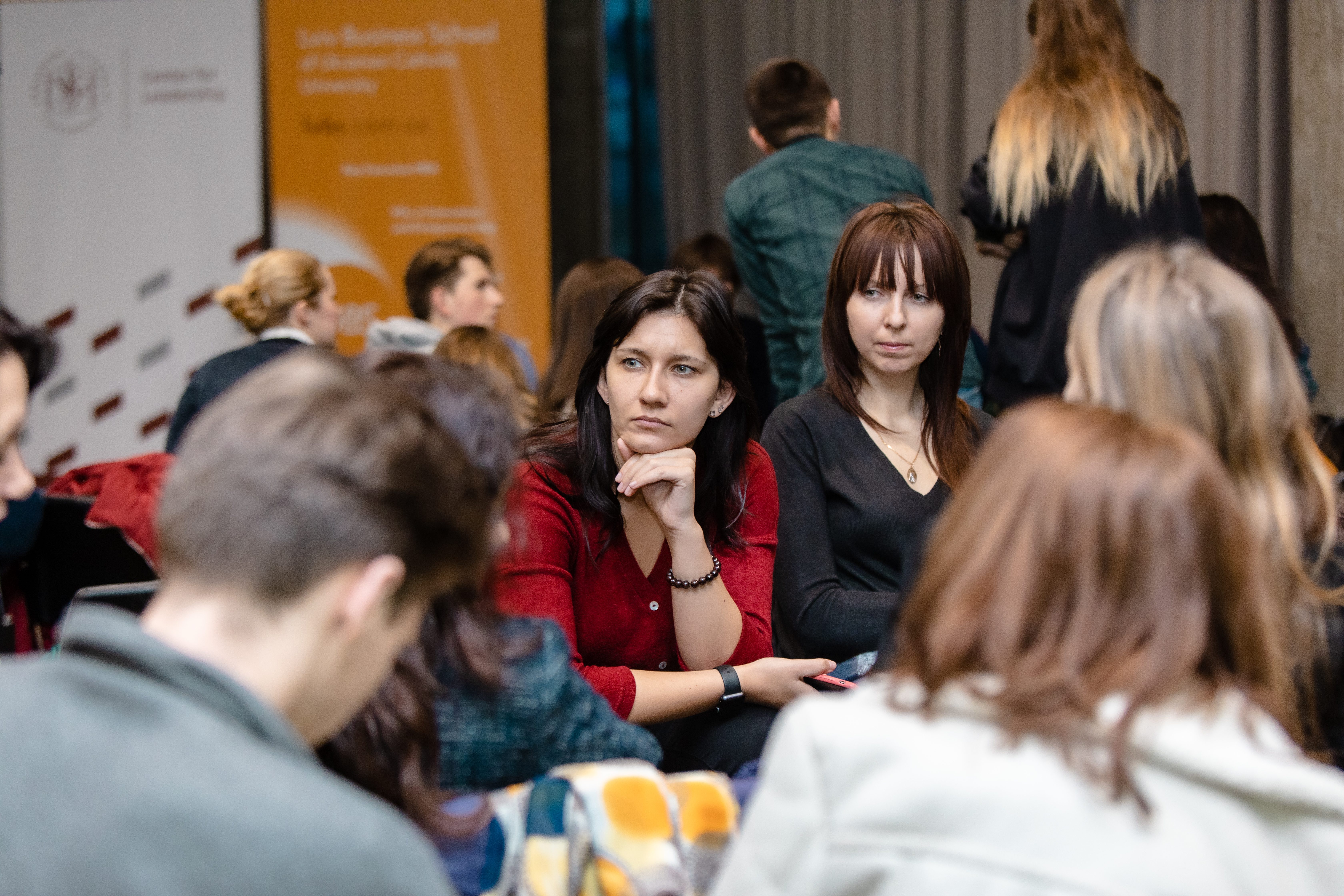
At the event, the participants had the opportunity to familiarize themselves with the case “Mission is possible. How the largest bank of Ukraine appeared under the control of the state”, which refers to the first steps of the new management of Privatbank in the early period after the nationalization of the bank. An investment analyst, ex-deputy director of the NBU’s Financial Stability Department who worked under the guidance of Valeria Hontarieva, and the character of the event described in the case, Evhen Dubohryz, helped all attendees to dive into the context of the events described in the case. “Case always starts with some dramatic plot. I recall the moment when the events, described in the case, began for me. It was a Friday evening, there was a call from the NBU leadership with the phrase “It has begun!” This is how we started, as we joked, the night of Friday to Monday. We had just a few days to prepare the entire legal framework, to take into account all the financial risks and to launch a complex communication campaign,” Evhen Dubohryz said. “The decision on nationalization of Privatbank was being made for more than one month. One of possible scenarios was to announce the bank insolvent and transfer it to a deposit guarantee fund. But we didn’t manage to model what the consequences would be, we knew it would cause panic, but it was difficult to predict the scale. Privatbank is a system bank, it is simply “too big to fail”. Nationalization was the most optimal solution. To understand the complexity of the situation that Privatbank was in at that time: the average debt ratio of the Privatbank borrowers to EBITDA was 70. In fact, they would have to work for 70 years to repay these funds,” the expert adds.
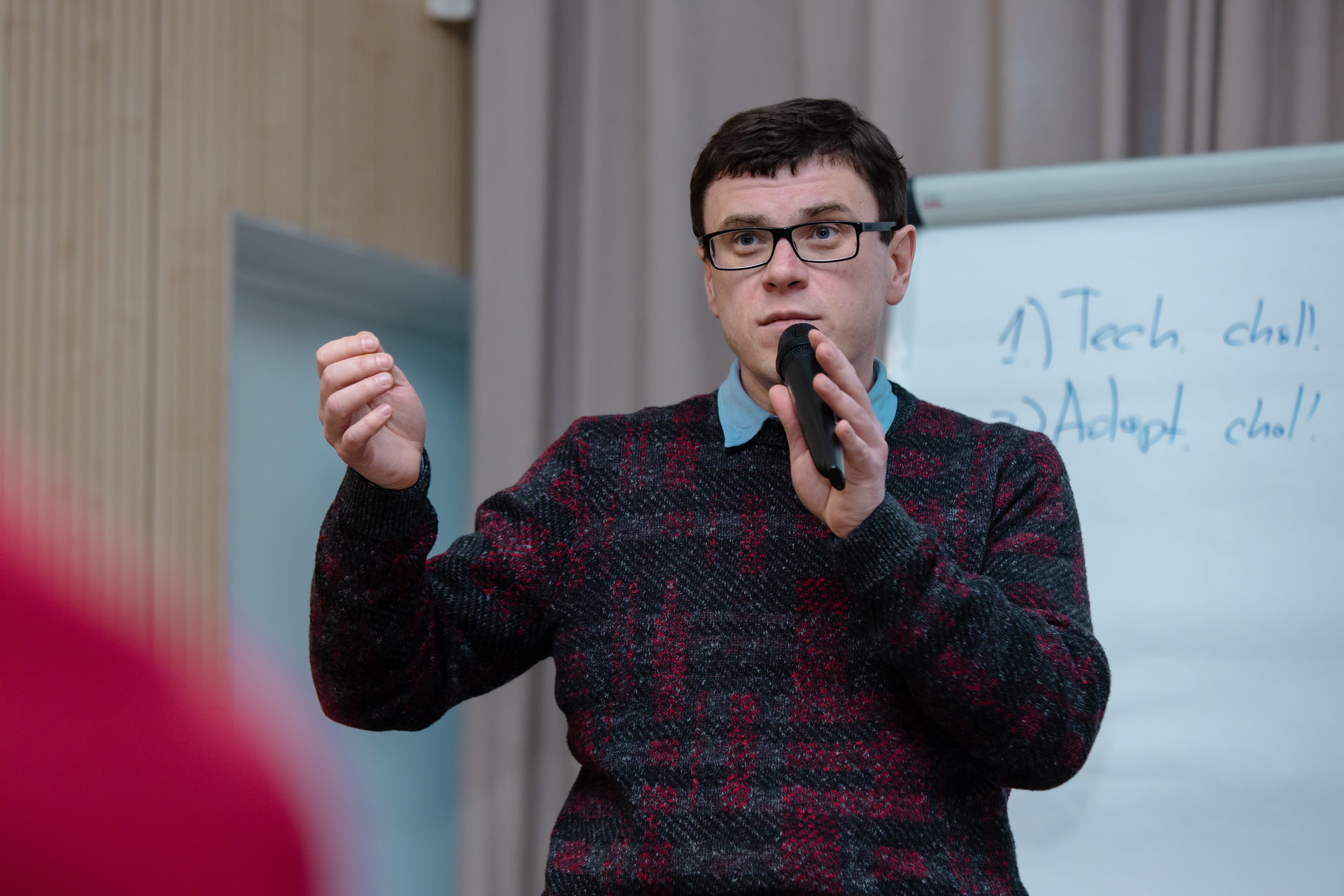
For the participants of the meeting to understand how to work with the case method, the CEO of the UCU Center for Leadership Andrii Rozhdestvenskyi split all the attendees into several groups in which they worked out the first steps the new management of Privatbank should have taken after nationalization and presented the theoretical model to all of the attendees on the basis of which this case may be analyzed.
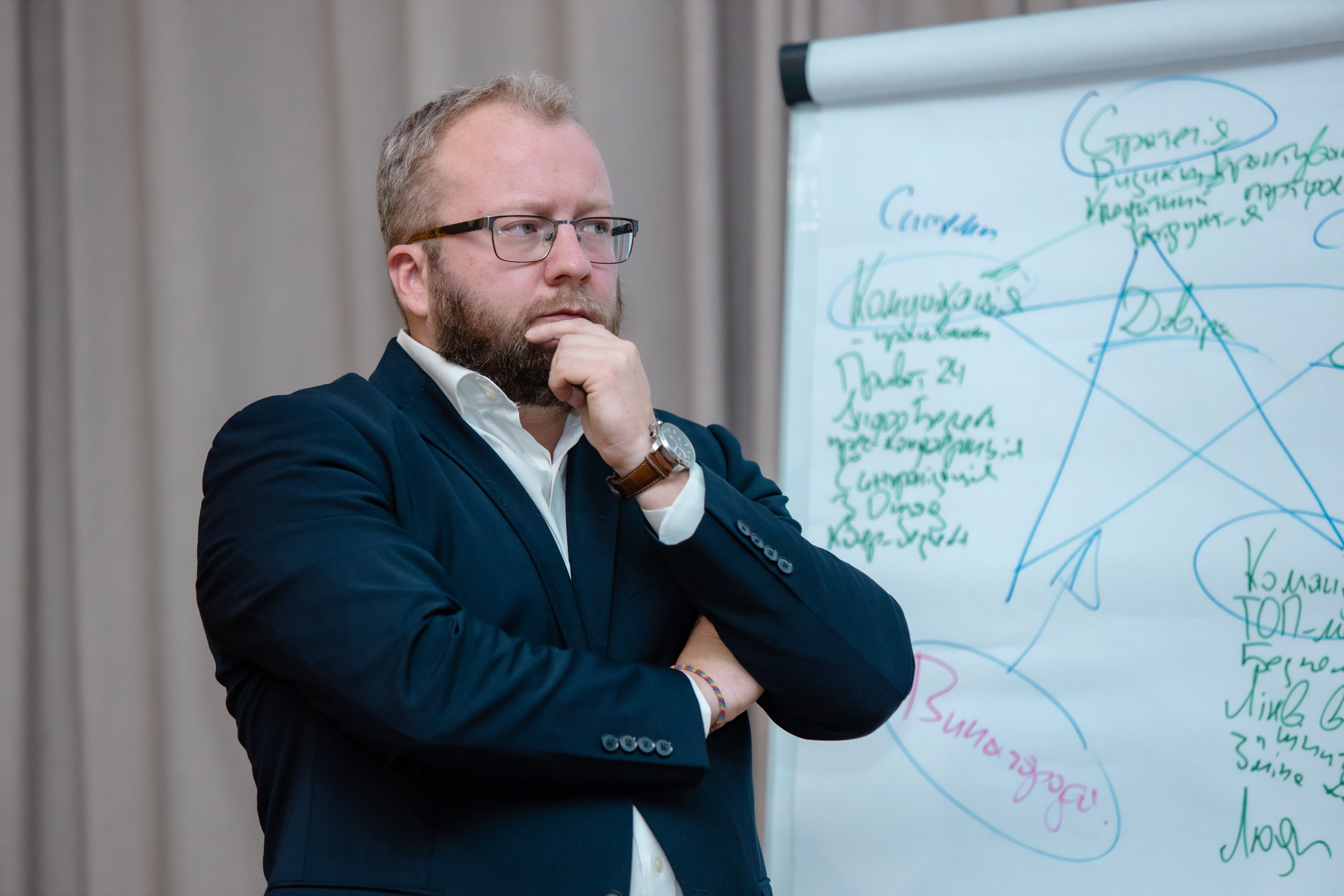
Background information:
“Book of Reforms” is a collection of twelve training cases, each describing comprehensively the specific case of the transformation processes that took place in Ukraine after the Revolution of Dignity in 2013–2014. More than twenty authors and editors have been involved in the work on collection, particularly from the Ukrainian Catholic University, the Center on Democracy, Development and the Rule of Law of Stanford University, Ian O. Ihnatowycz Institute for Leadership, Richard Ivey Business School, University of Western Ontario. The Book was written and published thanks to the generous donations of Mr. Ian O. Ihnatowycz and his wife Marta Witer, the President and the CEO of First Generation Capital Inc. in Canada, that is why we have an opportunity to distribute it for free.
Sophia Opatska – the Vice Rector for Academic Affairs at the Ukrainian Catholic University, Founding Dean of Lviv Business School of UCU (LvBS), co-author of cases;
Andrii Rozhdestvenskyi – the CEO of the UCU Center for Leadership, co-author of cases;
Yevhen Dubohryz – the Investment Analyst, Ex-deputy Director of the NBU Financial Stability Department (chaired by V. Hontareva), the participant of the event described in the case.